Notes from an IDF Base
While volunteering for a week, I asked tough questions, did some heavy lifting, and made memories for life.
Two Drops ago, I shared a detailed account of my time in Israel during the 12-day war with Iran. If that post started with Chapter 1 (“A New War”), then consider this week’s Drop the prologue to my Israel 2025 story.
As you know, I flew into Israel a week before my boyfriend was supposed to fly in (who never made it to Israel because, well…) to volunteer with a program called Sar-El.
Side story I don’t have to include but feel like complaining about: Why didn’t I volunteer with Birthright like everyone else, you ask? I had tried to volunteer through Birthright not once, but twice right after 10/7. Both times led to me being accepted, having technical difficulties with my application, not receiving help or any answers, and then being flat-out rejected without any explanation, all while my friends got to go volunteer.
So… third time’s the charm, right? Since I was going to Israel anyway for personal reasons, I figured I would find a different program to volunteer with. Shoutout to the Swords of Iron Facebook Group for sharing the opportunity I would eventually participate in, which interviewed and accepted me within a week!
That brings us to Sar-El, a program where you volunteer on an IDF base to help with logistics work, freeing up soldiers for more important tasks. Each base is different and you find out which base you’ll be on and what you’ll be doing the day you meet with the group, so you have to like surprises!
As a preface, I went into my army volunteer experience with uncertainty. I had just been accepted to the program when I learned about the Red Crescent workers killed in Gaza. It’s true that Hamas terrorists were among those killed, but still, I wondered: Was this really the right time to be volunteering with the IDF?
In a war that has gone on for far too long—one that is causing a devastating humanitarian crisis we’re seeing unfold before our eyes—I wasn’t sure there was a “right” time. But then I reminded myself of the mission of the IDF: to protect and defend the Jewish homeland. That’s separate from my beliefs of the government (which are quite negative), or decisions made by an individual commander, who the IDF later dismissed. Besides, it’s not like these young people fighting asked for this war.
During my week on base, I asked the soldiers tough questions regarding the situation in Gaza. I was relieved to hear their responses, often filled with a mix of humanity, compassion, and remorse. Their answers reflected the ethics of the IDF I’ve heard about for so many years, unlike the headlines we read in the news.
There’s a line from an amazing novel I’m reading right now about the Vietnam War (The Women by Kristin Hannah) that resonates with me, and that is: “Can’t they support the warriors and hate the war?”
Lastly, my whole Israel journey began when my brother joined the IDF as a lone soldier in 2010. His choice to move to Israel and defend the Jewish people was the catalyst for reconnecting with my Judaism, which changed the trajectory of my life.
Looking back, it’s only fitting that I was rejected from picking fruit with Birthright in the early days of the war. Instead, I got to experience a small part of what my brother did, bringing everything full circle. And boy, did it leave an impression on me. Thank you for reading.
Names and photos of soldiers have been intentionally excluded from this post.
Day 1
On Sunday morning, I met the group at Ben Gurion Airport. That’s when I found out we were going to a base in the Negev, about 30 miles from Gaza. It’s a logistics base, primarily with drivers who transport combat troops and deliver critical supplies.
It was a pretty large base, but we were confined to a small area that included our bunks, the dining hall, a small lawn with the occasional stray cat, a small synagogue, and a gazebo area with benches and a table that became our nightly hang.
We were an intimate group of 12, led by three young madrichot (counselors) from the IDF. Two were Israeli and one was from Ukraine. Our ages ranged from 31 to 82. We came from the U.S., France, and Canada. Most of us were Jewish but not everyone!
I quickly bonded with Judi and Jill, who are featured at the top of this Drop I wrote while in Israel. They’re two vivacious sisters-in-law who quickly took me under their wing (and who, as of today, owe me a phone call). I also became friendly with Jean, a former French naval officer and linguistics professor from a small fishing village in the south of France who sees all soldiers as “his children.” 🥲 I became friendly with everyone, really, because our group was so small and close!
The food on base was delicious. For lunch, we enjoyed a range of options from fresh schnitzel to a variety of salads. We learned that before October 7th, this base didn’t have a kitchen and dining hall since it’s a commuter base. But due to its proximity to Gaza, it became regularly used so they opened one.
The dining hall was full of young soldiers and older commanders and reservists, all dressed in their fatigues. We sat separately as a group; the soldiers didn’t engage with us. At first, I wondered if they even wanted us here, but our madricha assured us they were shy. To be continued on that front!
That afternoon, we got a tour of the base, which wouldn’t have been complete without receiving our army fatigues. These were real army uniforms that were mandatory for morning flag raising, but we typically kept them on because we became attached to them. I mean… boiler suits are in nowadays!
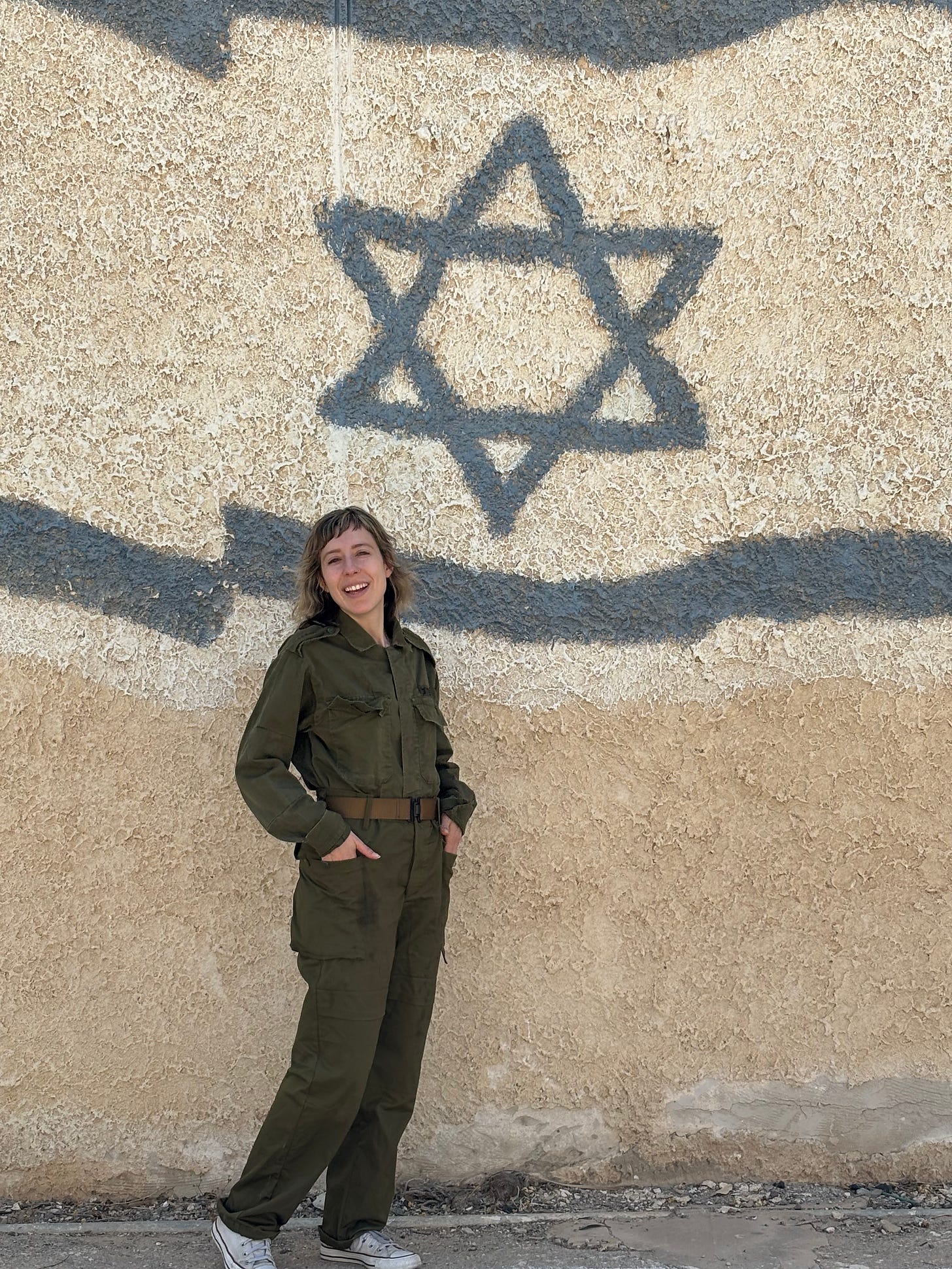
Day 2
Our first full day — it was time to work! After breakfast and flag raising, we worked for about three hours in the morning, took a lunch break, then worked for a couple of more hours, and then enjoyed free time.
On the first day, Judi and I volunteered to clean up the dining hall while the rest of the group did something else, and later Jill joined us. There was a lot of work to be done, from organizing the storage closets to mopping the huge floor, which I found meditative. It made the soldiers very happy to return to a sparkling clean dining room. At one point, the dining hall manager called me over and said, “I need you,” which felt meaningful to hear. That’s why I came here, to be needed.
During my free time, I studied Hebrew and read. I became deeply committed to improving my Hebrew, which was easy since some of the soldiers didn’t speak English.
An example: When cleaning the dining hall, I asked a soldier where a stack of paper plates should go, and I could tell he was searching for the English word for “closet” but couldn’t quite find it. I looked at the two closets nearby and asked in Hebrew, “Smol o yamim?” (left or right?). His face lit up with a surprised smile. “Yamim!” he said, beaming. Who knew that a brief exchange—half in English, half in Hebrew—about paper plates and closets would mean so much?
By our second day, the soldiers and reservists on base quickly warmed up to us, asking us questions about why we’re here and teaching us Hebrew. I was surprised by how generous they were. Our neighbors (yes, we slept next door to reservists, which made it feel like camp) shared their coffee with us, and one even got me a bag of candy. I should have been buying them coffee and candy.
It’s not just foreign volunteers they give food to; more than one soldier told us they give food to hungry Palestinians begging for food they come across in Gaza. We also met the drivers who actually drive aid to the Gaza border. I was curious what else I would learn and discover in the upcoming days.
Day 3
Judi and I did such a great job cleaning the dining hall that we were invited back the next day, but we wanted different work. We joined the rest of the group in the warehouse, organizing various tools and parts, most of which I couldn’t name in English or Hebrew to save my life.
Each night, our madrichot ran programs to teach us about Israeli culture. This night’s activity was about Israeli memorial stickers, which are placed on store fronts, bus stops, lamp posts, and street signs all across the country to honor civilians and soldiers who have died in the current war.
Each sticker bears the deceased person’s photo, their name, lifespan, army rank if applicable, and sometimes a motto connected to them. They’re a beautiful way to honor the fallen and really bring the country together.
As a group, we looked at dozens of stickers spread out on a table and chose one that stood out to us. I chose a young man named Shay Michaeli, because he had a kind smile.
Indeed, his sticker said, “Thank you, for with your blue and kind eyes, there isn’t anyone you haven’t truly seen.”
Upon scanning his sticker’s QR code, I learned he enlisted in the IDF as a combat soldier in 2022 and died in 2024 at the age of 19. He is survived by his parents and sister.
I got a better sense of who he was by visiting his memorial Instagram profile, which features photos of him with cats, bubbles, and stuffed animals. I couldn’t believe this skinny, kind-looking man was a combat soldier. He seemed like someone who could have been my younger brother.
Another sticker that stood out to me was in honor of Captain Or Moses, who died on 10/7 at 22 and whose sticker said, “Live like you will die tomorrow. Learn like you will live forever.”
Something I noticed on all the stickers while writing this was that each name was not followed by the traditional z”l, the Hebrew abbreviation for “May their memory be a blessing,” but by hy”d.
Curious, I looked up what hy”d stands for, and learned that it’s Hebrew for “May G-d avenge their blood.” It follows the names of victims of terror, Holocaust victims, etc.
While I understand this abbreviation has deep traditional roots, stemming from the Bible that calls for vengeance for bloodshed, I think the emphasis should be on the person’s life, rather than on revenge.
I just had a nice talk with Phil, my person and unofficial rabbi, about this. He said he prefers the wording because it’s a method of linguistic witness. “Even if nobody witnessed the actual murder, they bear witness to the fact that it happened,” he said with logic and sound reasoning, as usual.
You can look up more stickers and honor the victims’ legacies here.
Day 4
This day’s work was more intensive, as we filled large crates with tank repair parts. Each kit included tools like sledgehammers, chains, and hooks. And let me tell you, they were heavy! The commander and some of the male volunteers doubted my strength, but I showed them. I’d carry a heavy bar or chain and say, “Ani chazakah!” (I am strong). 💪
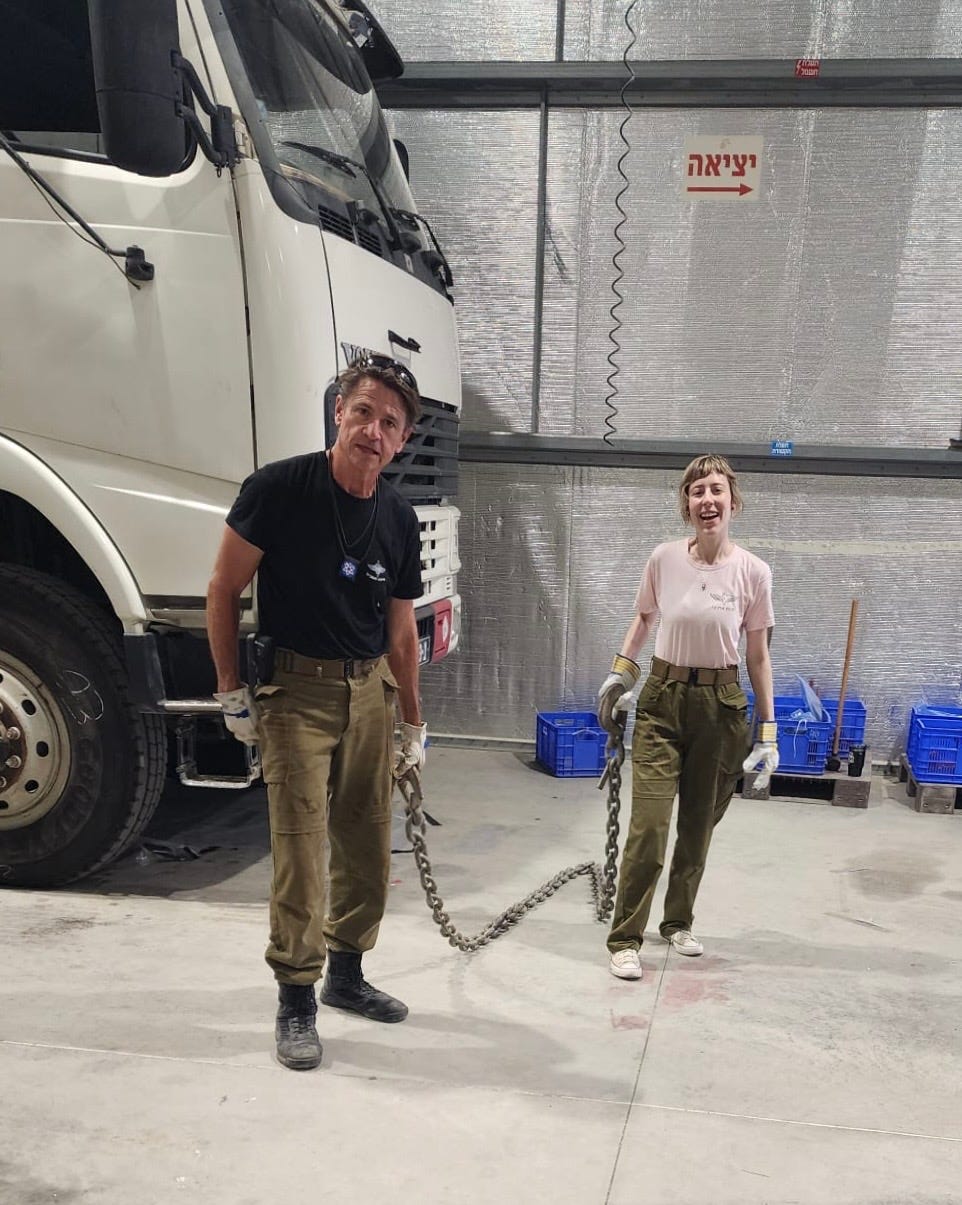
At first, we were told we were preparing these kits for future wars, should Israel need them. This left me feeling disappointed; I wanted to support Israel during this war.
But we then met a combat soldier who just arrived from Gaza. He assured us our work was going directly to aid the soldiers in Gaza, and that we were saving lives.
We were allowed to ask him questions, so I asked him his opinions of the war, and how he’s making sure civilians are out of harm’s way. I can’t share some of what he said because it involved soldier protocol and it was off the record, but his answers restored my faith in the IDF and cast aside any doubts I had.
What I can share is how he responded when I asked him for one takeaway he’d want you all to know. He said: “Don’t follow an ideology. Follow your own values.” We agreed the same could be said for both sides of this devastating war.
When talking to this soldier, we somehow got on the topic of his fears of Judaism disappearing within the next 200 years. He expressed his concerns regarding interfaith marriage and less engaged Jews. While I thought his worries were valid, I found his forecast of Judaism to be overdramatized, but remained quiet and more of an active listener.
It was when he started ranting about female rabbis that I spoke up. He argued that Judaism doesn’t permit women in that role, that we should stick to traditional gender roles, and that women don’t know enough Torah or Talmud to be rabbis. I told him that not only do women study Torah and Talmud, but I know and work with an orthodox woman who is a respected Torah scholar. He didn’t believe me and said I must be thinking of her husband. Oy!
We then got into an interesting discussion about whether or not it’s okay to adapt your own Shabbat practices to meet your needs in the modern day, a topic that’s important to me and one that we surprisingly agreed on.
I came alive during the conversation, knowing that I wasn’t afraid to express my opinions and argue with this poor guy who’s fighting in Gaza and being pestered by a liberal American! He didn’t mind at all though.
Break time: After studying Hebrew, I usually went for walks with friends to catch the sunset. The breaks felt strange because of how peaceful the base felt. It was like I was on vacation, surrounded by palm trees and birdsong. But then I’d quickly snap out of it and be reminded of war, especially when I’d hear distant bombs. It was this weird mental jump, going from peace to harsh reality, like how I describe in my Drop about being in a war zone.
That’s when I realized that this true sense of peace I felt was because I was here in Israel, living out my values and interests, rooted in a strong sense of community.
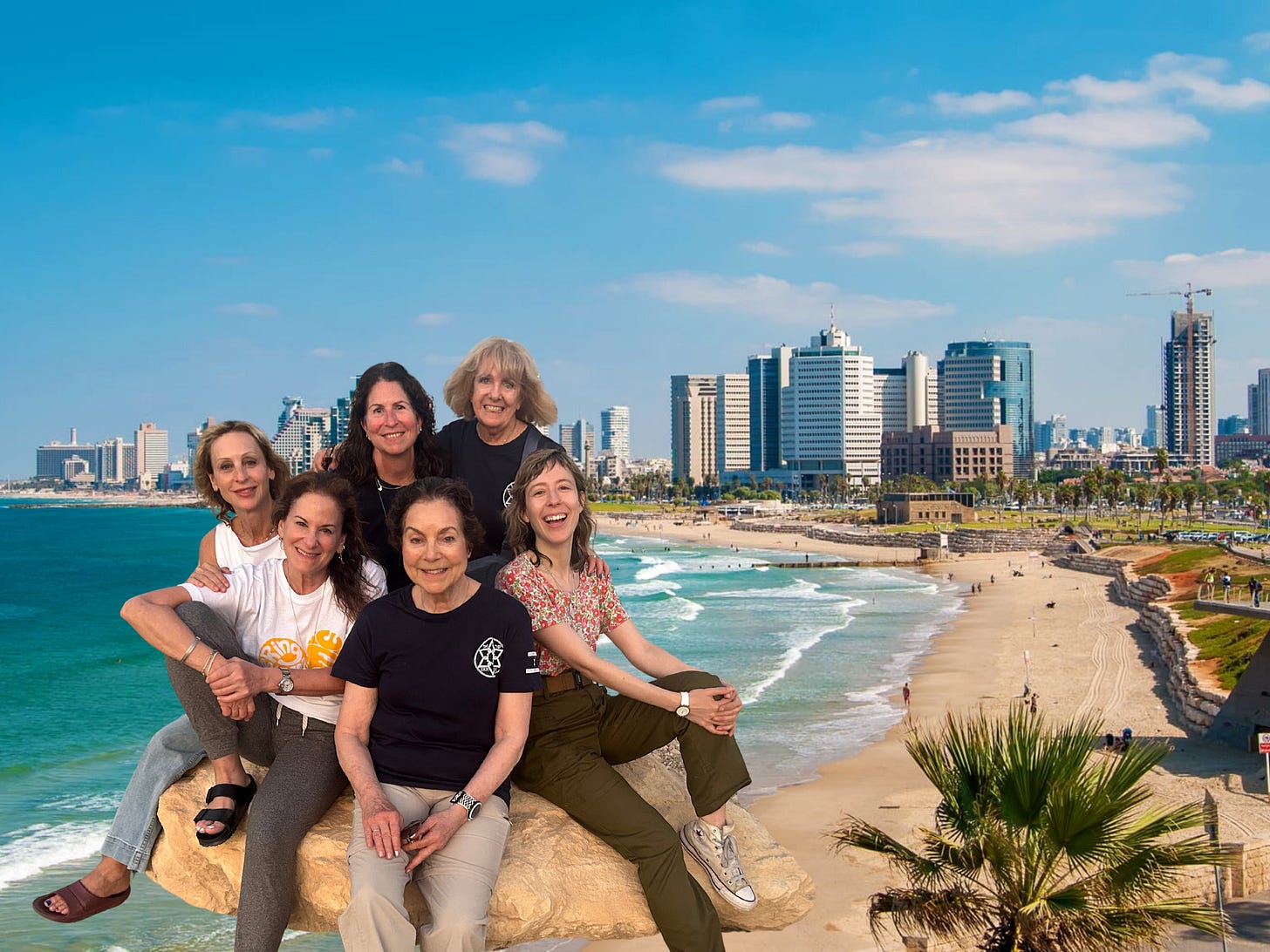
That evening, we had another program commemorating the victims of 10/7, and read in depth about some of the lives lost. It was followed by a group discussion, during which I vehemently disagreed with some points my fellow volunteers raised. One person brought up Israeli programs that bring young Jews and Arabs together, and expressed how they can’t create real change and might even cause harm, because “look what happened on 10/7.”
I responded, saying not only do I believe dialogue is the first step toward peace, but I know it to be true, and cited my interview with the co-founder of Polyphony.
Here in the Negev, I was finding my voice, and I wasn’t afraid to use it.
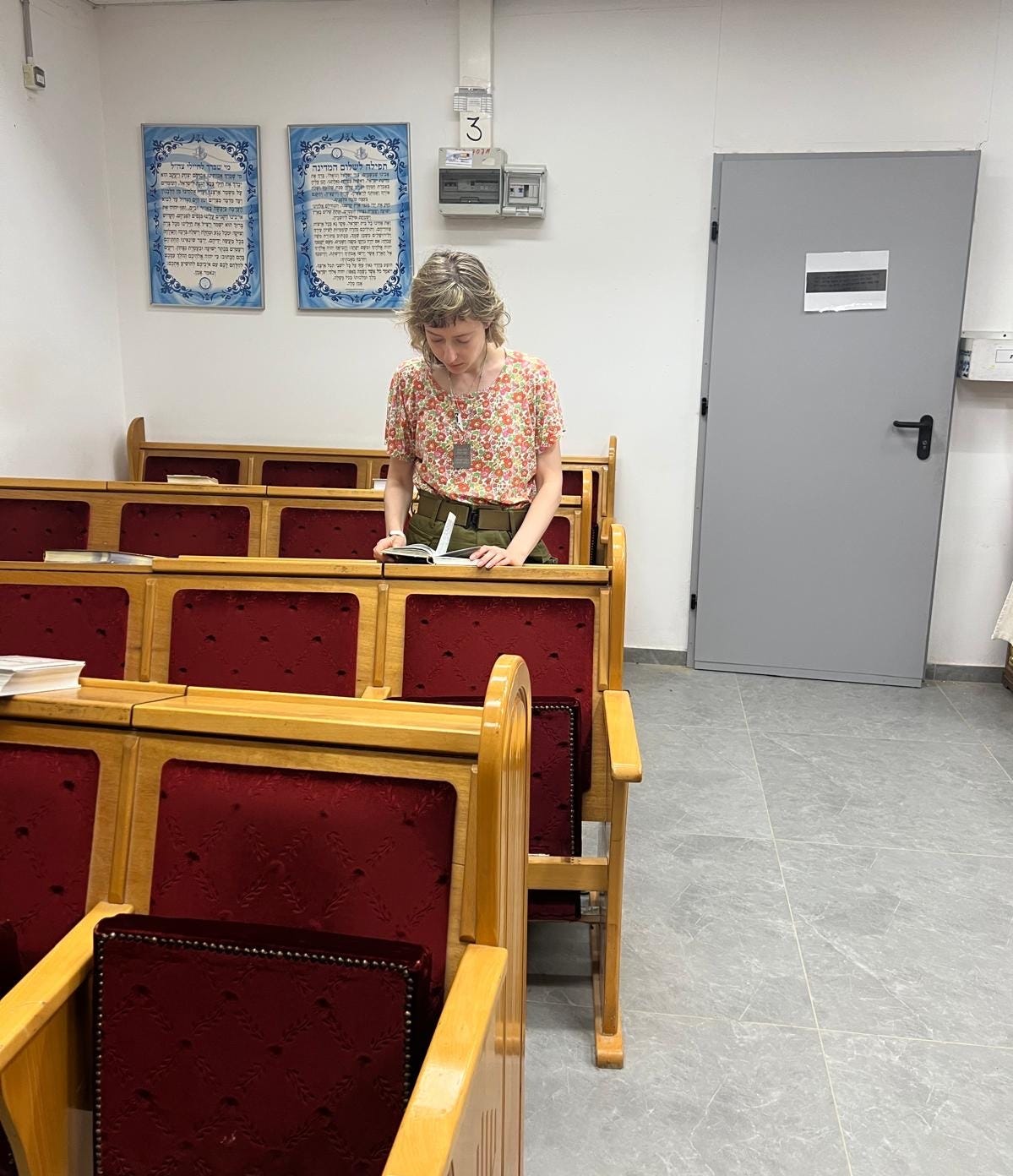
Day 5
Our last day… I couldn’t believe it! I was getting so used to my daily routine here: enjoying fresh meals with friends, hauling heavy tools from one place to another, realizing that I brought the tools to the wrong place because I had no idea what the soldier was telling me to do in Hebrew, studying and practicing my Hebrew, and making memories along the way.
I was proud to lead the flag raising ceremony that morning, with all soldiers on base present. So of course I couldn’t figure out how to hook the flag rope on the hook, and a commander had to come and help me. Yes, this was all captured on video. No, I can’t post it but am happy to send it to anyone who needs a good laugh.
Before leaving the base at noon, we squeezed in one more hour of work, which involved cleaning up the base. As a base full of mostly men, it was disgusting! I will spare you the details, but cleaning the base was harder than lifting heavy tools.
Following an ice cream party, we received certificates and pins from the base commander. I also received an unofficial certificate from my friends for “outstanding use of her journalistic instincts in Hebrew attempts to ask the tough questions.”
Throughout the week, soldiers told us how much it meant to them that we were there. They also couldn’t believe it. “You paid to be here?” they asked us incredulously.
One pointed out that right after 10/7, there was an influx of volunteers from around the world, but since then, the numbers have dropped. That’s why our presence there really mattered. It also showed the soldiers that despite the global hate, there’s people around the world who care about them.
Upon our return to Tel Aviv, not even a full day later, the new war with Iran had begun. Thanks to Sar-El, I had friends to stick it out with. I will never forget the time I was able to finally give back to the country that had given—and continues to give—me so much.
📚 Shabbat Plot
Hey! My fellow volunteer has written not one, but TWO books about his Sar-El experiences. If you’re interested in Sar-El but can’t make it to Israel right now, or you want to live vicariously through his adventures, check out this second book: A Passion for Israel: Adventures of a Sar-El Volunteer by Mark Werner.
The book follows his 14 stints of volunteering from 2006-2019. Each chapter starts with context around what’s going on in Israeli news, so much of the book focuses on the Second Lebanon War, Hamas, and Iran. Reading it in Israel was eerie, considering how much history was relevant to the present day, like Hamas kidnapping Israelis, and Iran’s nuclear capabilities.
Mark paints a vivid picture of what it’s like being on base, including the camaraderie, being there during wartime, and his love of Israel. I highly recommend it.
Shabbat Shalom. Praying for peace for all,

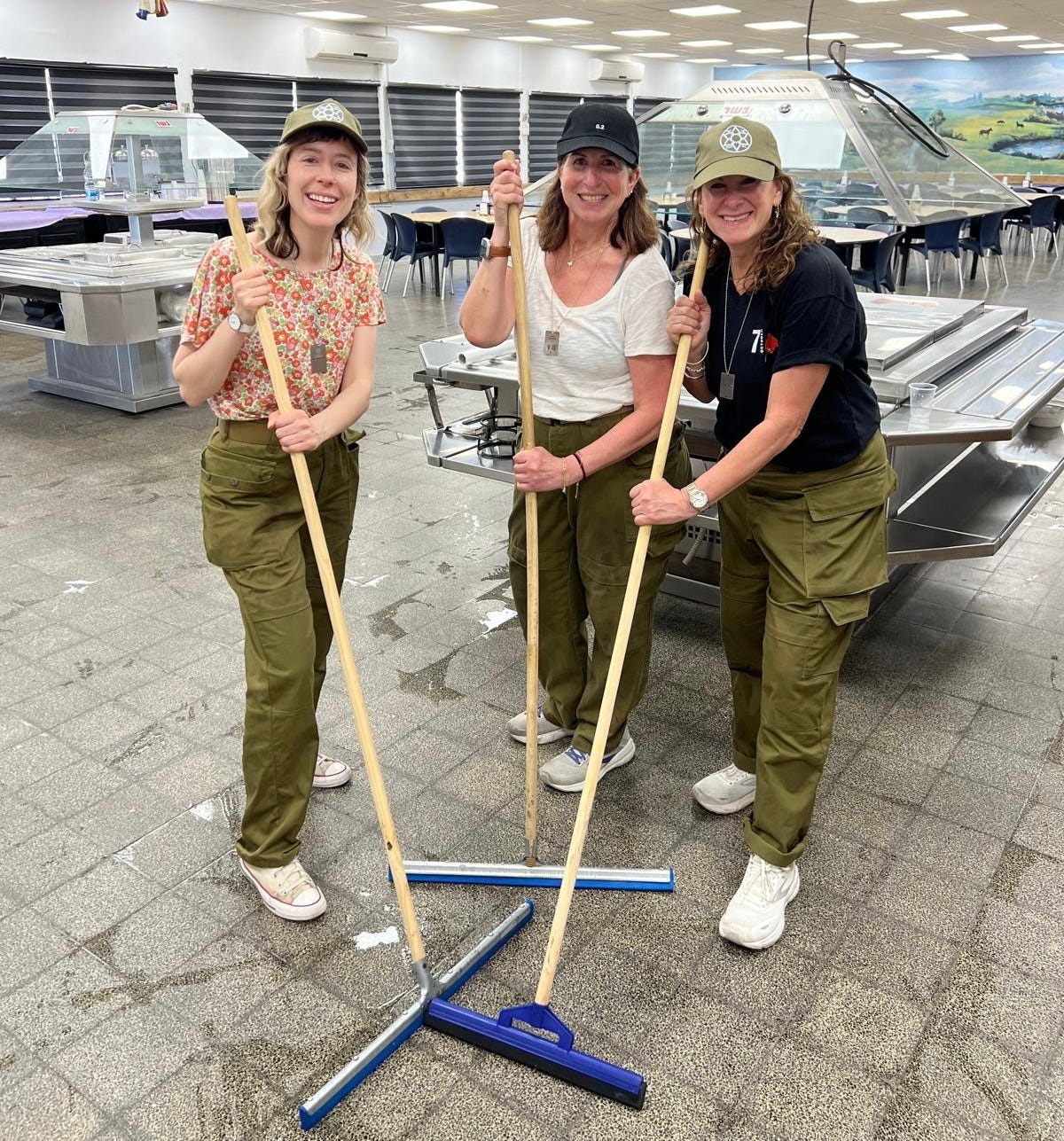
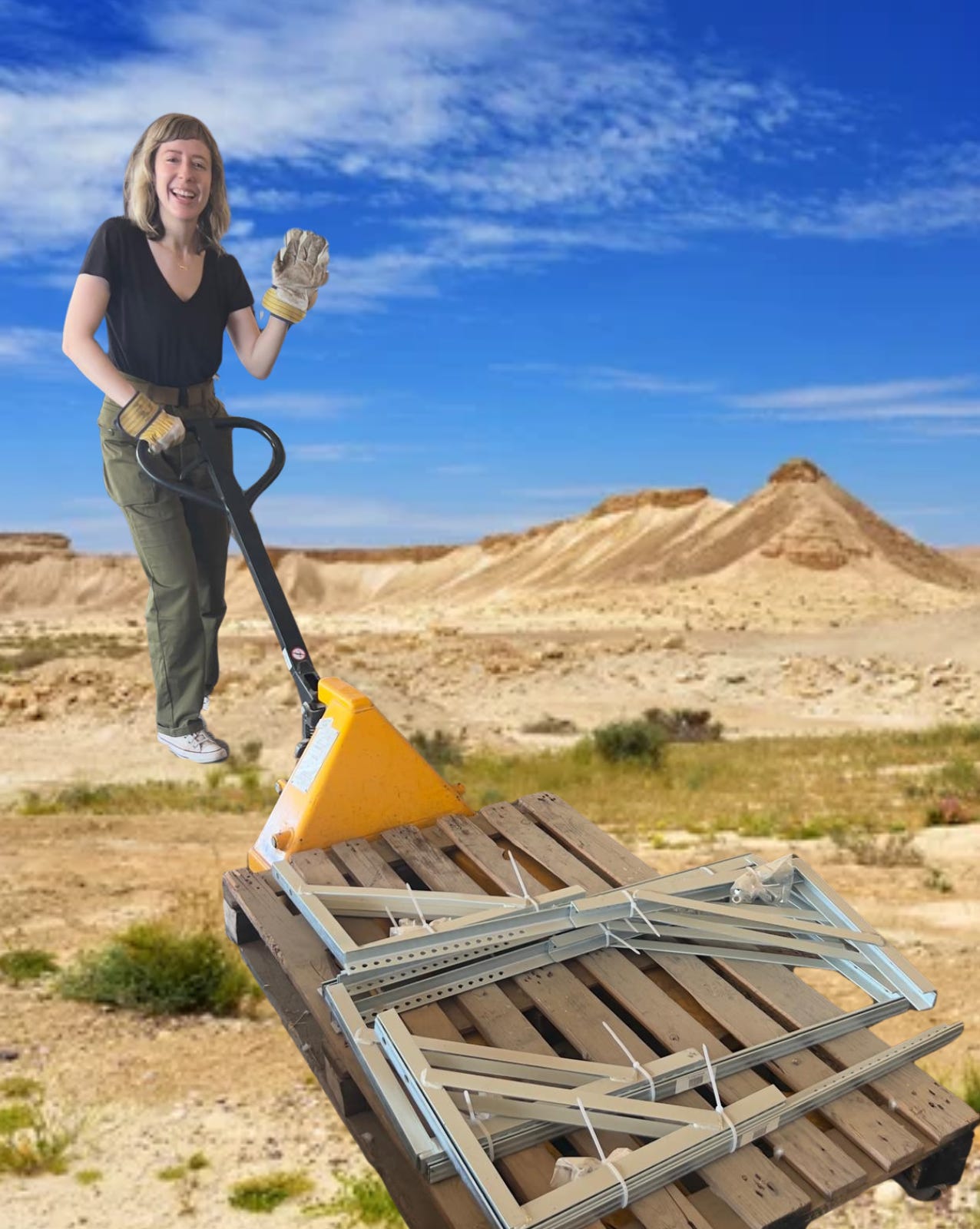
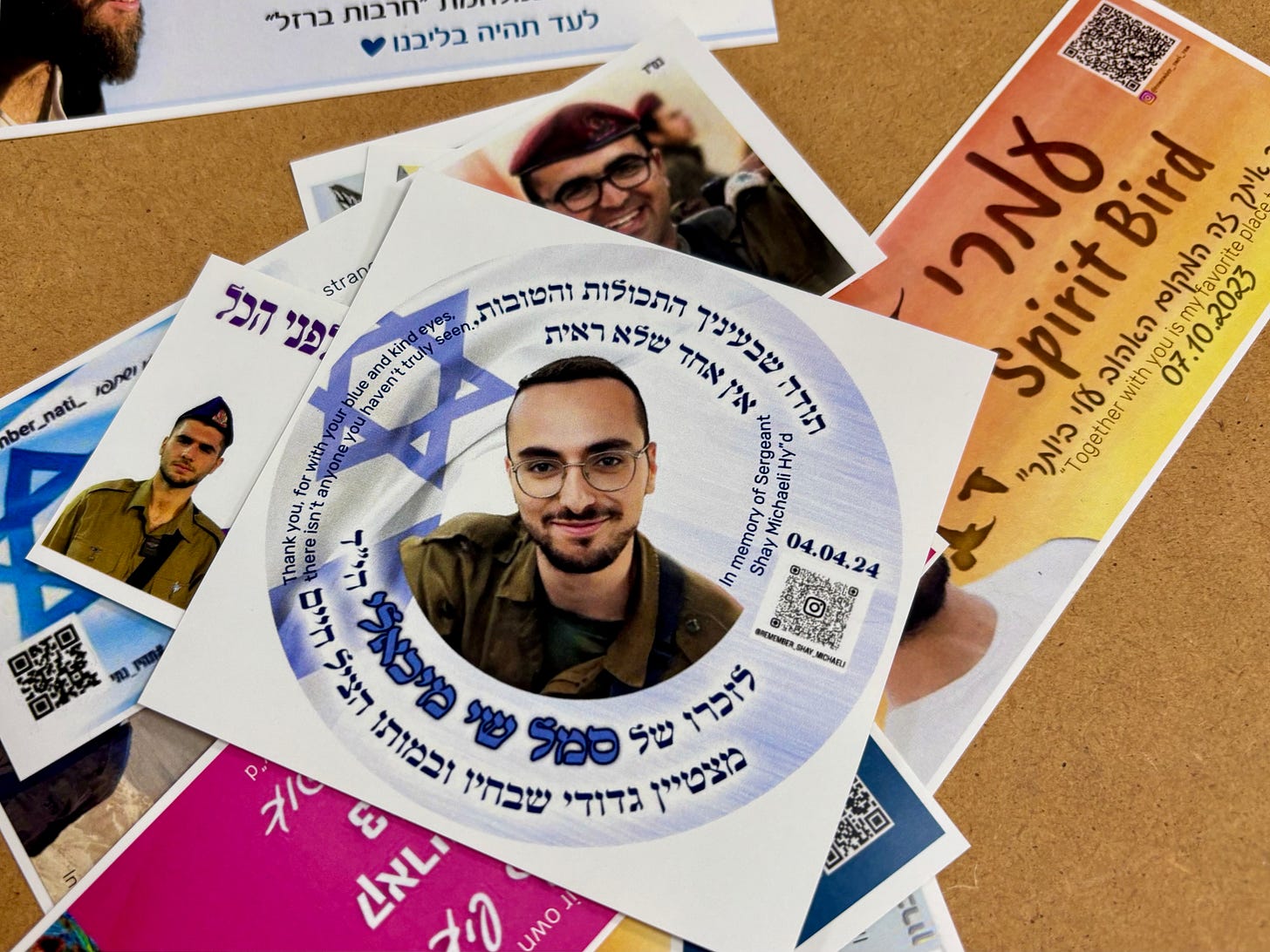
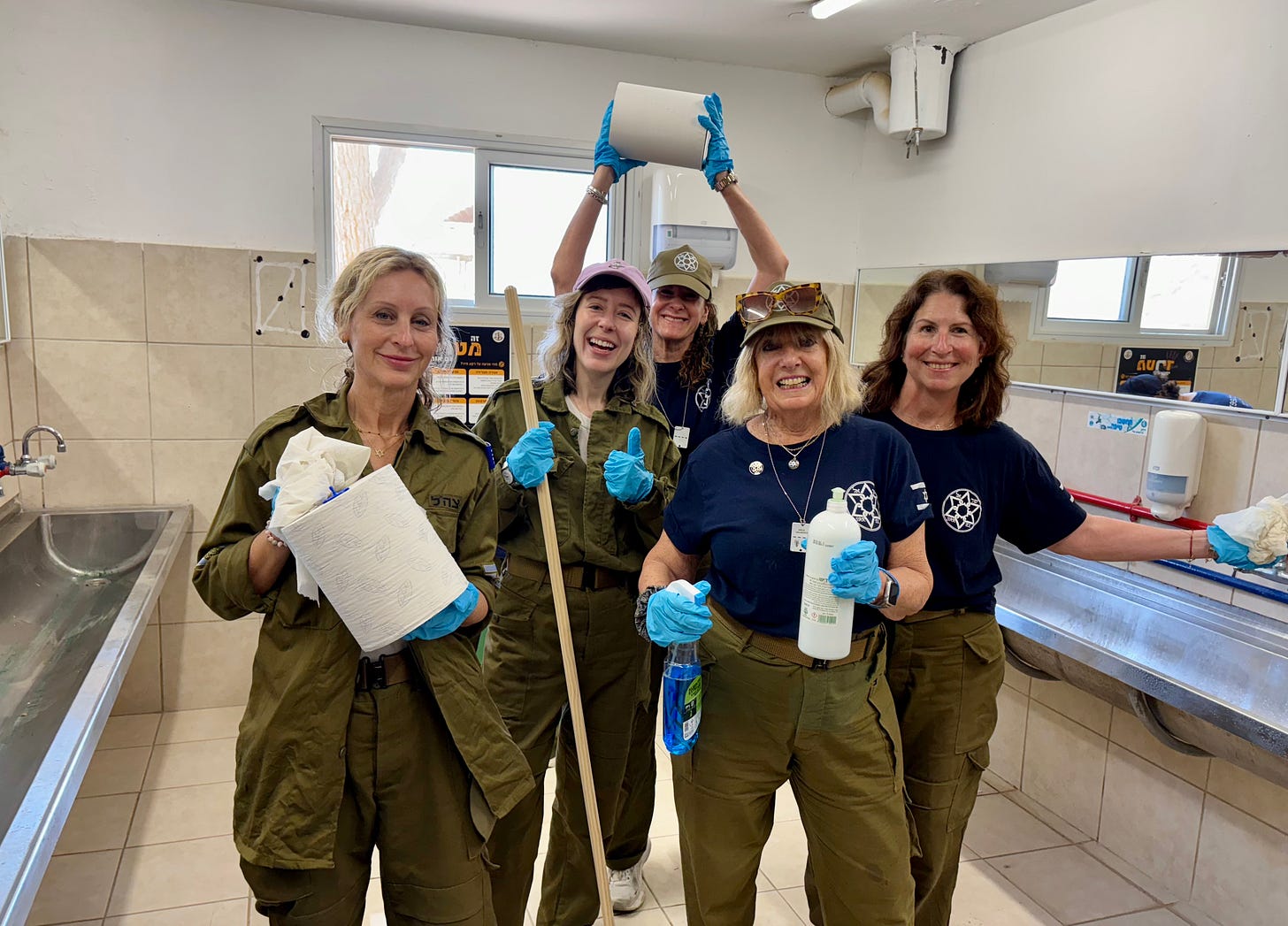

I really like you and your professional style, a class act. I know David, Marla and mom Vivian, fine people. SAR-EL attracts the finest, glad to have met them all.
I’d love a bit of lightness and would enjoy watching you attach a hook to a flag!
I’m enjoying the day by day commentary!